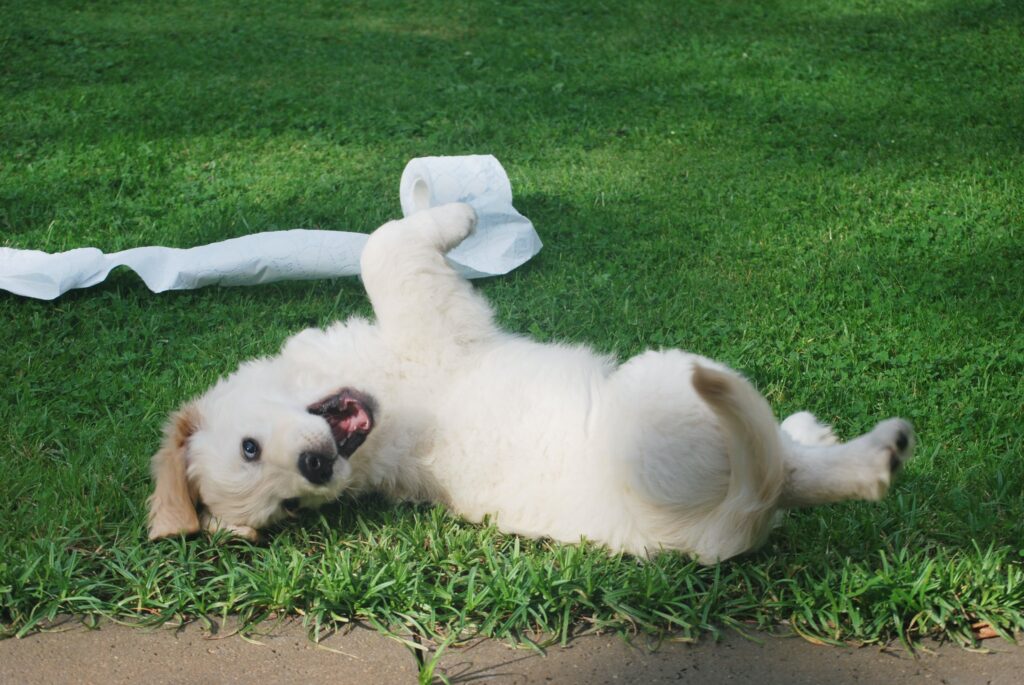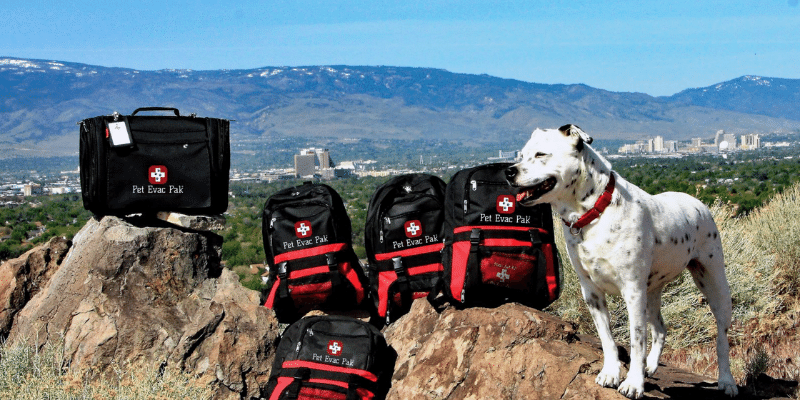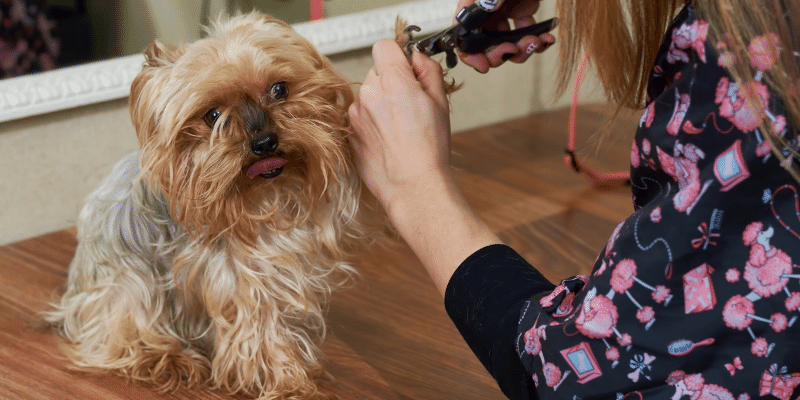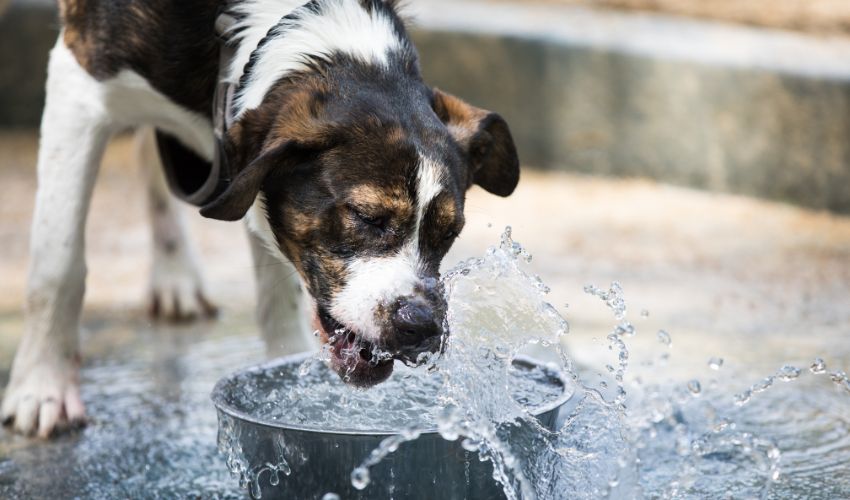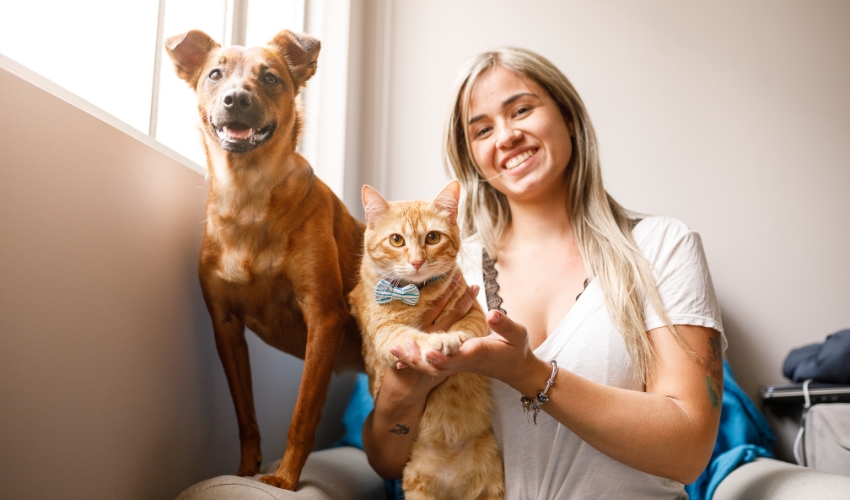What is Giardiasis?
Giardiasis is a common intestinal infection in humans and animals which are caused by a microscopic protozoan parasite called Giardia. Giardia can be found on surfaces or in soil, food, or water that has been contaminated with feces from infected people or animals.
How does my pet cat or dog get infected with Giardia?
Your furry friends can get infected if they eat or drink contaminated food or water. Ingesting does not always mean eating contaminated food or water, but this can also happen during sniffing time! When your pet sniffs an infected animals’ hind ends then licks their body, they can also get giardiasis.
Signs and Symptoms of Giardiasis
Giardia can sometimes be present in dogs or cats and pet owners may not even know it. That’s because your fur babies may be asymptomatic. This means that your pets can still have a normal appetite and energy levels, but are already infected with the parasite. Diagnosis may only be confirmed during routine check ups to the vet.
Although Giardiasis is usually not something to be worried about, younger cats and dogs or pets with weakened immune symptoms are more likely to experience worrisome symptoms.
In severe cases, dogs may experience lethargy, decreased appetite or weight loss. The most common clinical signs of Giardiasis include: Acute or sudden diarrhea Soft or watery stool with mucus and a foul odor Abdominal discomfort
The most common clinical signs of Giardiasis include:
- Acute or sudden diarrhea – Your pet’s stool would range from soft to watery, often has a greenish tinge, and occasionally contains blood.
- Vomiting – Your pet may experience vomiting when infected with Giardiasis. As a result, you might notice a decrease in appetite, decrease in energy, and especially weight loss.
- Frequent urges to poop – Pets diagnosed with Giardia usually have 2 to 5 loose stools per day which can progress to fatigue.
- Excess foul-smelling gas
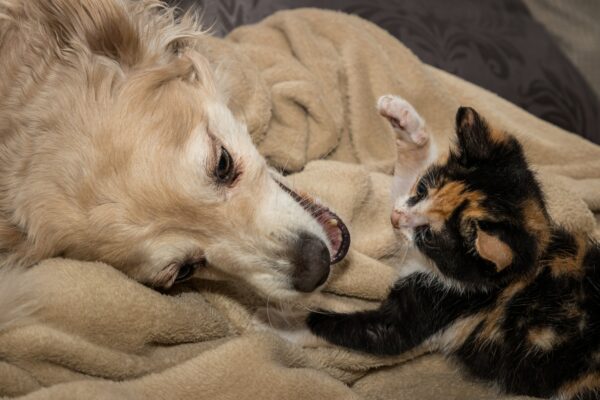
Is Giardiasis Contagious?
If one of your pets is diagnosed with Giardiasis it would be safer to isolate him/her to prevent your other pets from being infected as well.
Giardiasis can be easily transmitted by eating or even just sniffing the cysts from contaminated ground, food, or drink. Giardia can be spread easily in situations where a lot of dogs are found all at once like, dog parks, vets, kennels, or between pets living in the same household.
How to Diagnose Giardiasis
To start, your veterinarian will gather a complete history of your pet to check for possible Giardia exposure and to have a thorough idea on the course of illness that led to the manifestation of symptoms. Next, your vet will conduct a physical exam to evaluate your pet’s overall health and hydration, and to check for any discomfort on your pet.
To confirm the diagnosis of giardiasis, your veterinarian will need to examine a stool sample. In some cases, Giardia cysts may not be seen on a single stool sample, and so your vet may have to perform a second fecal test.
How to Treat Giardiasis
Giardiasis is easily treatable and usually not a life-threatening disease. Once diagnosed, your veterinarian will prescribe your pet medications that will resolve diarrhea and other symptoms that your pet is experiencing. The usual medications given are deworming medications or antibiotics to treat Giardia, but sometimes your veterinarian would prescribe two medications in combination. These oral drugs are usually given 3 to 10 days. For pets without symptoms they may not be required to take medications.
However, you have to be extra careful with your elderly pets, young pups, or dogs with immunodeficiencies because the risk of complications and even death is possible.
Aside from oral medications, it is also advised to disinfect your common household in order to kill Giardia cysts that may be around the area. Some vet would also advise a diet that supports digestive health to help resolve the diarrhea and to bathe your pets on the last day of treatment in order to remove any fecal matter or Giardia cysts on your pet’s fur.
How to Prevent Giardiasis


- Always dispose of all feces promptly and properly – This is the best way to prevent the spread of Giardiasis. And of course, don’t forget to wash your hands afterwards.
- Change your pet cat’s litter boxes daily – Thoroughly clean and disinfect litter boxes to ensure a clean and safe environment for your pet cat.
- Remove any stagnant water – Make sure that your pet cat or dog has clean and safe drinking water at all times.
- Don’t allow your pets to drink communal water in public places – Always bring your pet’s water bottle so you are always sure that they are drinking clean water.
- If you have an infected pet living in the same household as your other pets, make sure to inform your veterinarian so they can also get checked. This is because Giardiasis can be present even without the usual signs of a Giardia infection.
Reinfection with Giardia is pretty easy and very common, especially in areas that are not managed properly. The key to an effective treatment and a decrease in reinfection relies on proper anti-parasitic and/or antibiotic medications, making sure your pet always have access to clean food and water, and keeping the environment, both indoors and outdoors, clean.
Maintain a healthy hygiene and clean environment for your pets and enjoy a healthy and fuzzy life with your four-legged best friend.

